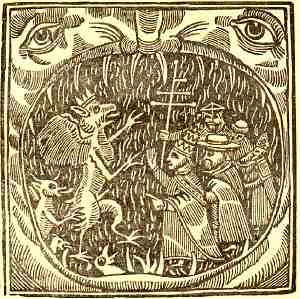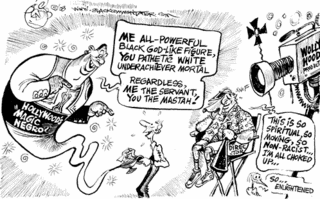Recently I was sent notice that the eminent translator, Stanley Lombardo, was going to perform selections from his work at the University of Texas in Austin. I shall certainly take the always perilous journey from Little Hope to Austin to attend. Several years ago, a good friend who had just completed a course of study in ancient Greek, excitedly pushed a copy of Lombardo's translation of the Iliad into my hands. "There is no such thing as translation, only rendering," he told me. "And this is the best rendering of Homer so far."
I was immediately struck by the cover photograph, "Into the Jaws of Death", 6 June 1944, of the Marines landing on the beaches of Normandy. I turned to the Translator's Preface and read:
A musician once asked Ezra Pound if there was anywhere one could get all of poetry, in the sense that one could get all of music in Bach. Pound's response was that if a person would take the trouble to really learn Greek, he could get all of it, or nearly all of it, in Homer. If Pound is right, and I think he is, then the real work of the Homeric translator is clear: to produce a version that is responsive not only to meaning and nuance but also to overall poetic effect, a version that has as much poetry as the original text, the translator's talent, and the current literary situation will yield. This requires loyalty to the essential qualities of Homeric poetry - its directness, immediacy, and effortless musicality - more than replication of the verse's technical features (although these must at least be suggested). In the end, it is the greatness and reach of Homer as a poet that the translator must confront. Accuracy and nuance are attainable through scholarship and good writing; technical problems admit various solutions; but what we love is the poet's voice, and finding its tone, rhythm, and power is the heart of Homeric translation.Lombardo's "rendering" was, as you might imagine from those prefatory remarks, excellent. I had read Robert Fagles translations of the Iliad and the Odyssey not long before and found Lombardo's to be much more immediate - in the sense that, even with its near colloquial modernity, it felt closer to Homer; rather, who I imagined Homer to be.
Down there at the roots of the Western Canon is such a strange beast.
In his essay, Homer in English, George Steiner writes:
To borrow an image from plant genetics: the sequence of translations from Homer provides a unique radioactive tracer. By its luminescent progress, we can follow the development of the language, of its vocabularies, syntax and semantic resources, from root to stem, from its stem to its multiple branches and leaves. Every model of English lexical and grammatical observance is visible in this chain: all the way from the most ornate and experimental, as in Chapman or Joyce, to the 'basic English' purpose in I. A. Richards's narration of the fury of Achilles.....Which brings Christopher Logue's translations (accountings) to the front and center. In the author's note to War Music: An Account of Books 1-4 and 16-19 of Homer's Iliad, he states:
This vivacity if structural illumination, of dynamic legibility, as in a radioactive tracer coursing through organic tissue, springs from the nature of translation itself. For it is through the process of translation that language is made eminently self-aware. Translation constrains it to formal and diachronic introspection, to an explicit investment and enlargement of its historical, colloquial and metaphorical instruments. Simultaneously, translation puts language under the pressure of its limitation. It will solicit modes of perception and designation which that language had left underdeveloped, or had altogether discarded. An act of translation draws up the balance-sheet, as it were, for the target language.
Rather than a translation in the accepted sense of the word, I was writing what I hoped would turn out to be a poem in English dependent upon whatever, through reading and through conversation, I could guess about a small part of the Iliad, a poem whose composition is reckoned to have preceded the beginnings of our own written language by fifteen centuries.Logue's translation is, as Steiner remarks, incandescent. White-hot flashing neon that is not always the best modality for expressing a "loyalty to the essential qualities of Homeric poetry": but still illuminating. I thoroughly enjoyed it. Logue's "balance-sheet" for the language opened up aspects of the inner drama of the text that I had never quite caught before. The immediacy here wasn't so much one of getting close to Homer as it was one of getting close to the core humanity of the poem.
My reading on the subject of translation had produced at least one important opinion: "We must try its effect as an English poem," Boswell reports Johnson as saying; "that is way to judge of the merit of a translation."
A few comparisons between the Lombardo and Logue translations:
Rage:A while back. Jim Lewis profiled Christopher Logue in Slate on the occasion of the publication of All Day Permanent Red: An Account of the First Battle Scenes of Homer's Iliad. Is is an informative and amusing piece. I particularly enjoyed this passage (the line, "a man whose eccentricities border on madness", is perfect):
Sing, Goddess, Achilles' rage.
Black and murderous, that cost the Greeks
Incalcuable pain, pitched countless souls
Of heroes into Hades' dark,
And left their bodies to rot as feasts
For dogs and birds, as Zeus' will was done.
- Lombardo, Book 1, 1-7
Picture the east Aegean sea by night,
And on a beach aslant its shimmering
Upwards of 50,000 men
Asleep like spoons beside their lethal fleet.
- Logue, Book 1, 1-4
"This time we will save you, mighty Achilles,
This time- but your hour is near. We
Are not to blame, but a great god and a strong Fate.
Nor was it slowness or slackness on our part
That allowed the Trojans to despoil Patroclus.
No, the best of gods, fair-haired Leto's son,
Killed him in the front lines and gave Hector the glory.
As for us, we could outrun the West Wind,
Which men say is the swiftest, but it is your destiny
To be overpowered by a mortal and a god.
Xanthus said this; then the Furies stopped his voice
And Achilles, greatly troubled, answered him:
"I don't need you to prophesy my death,
Xanthus. I know in my bones I will die here
Far from my father and mother. Still, I won't stop
Until I have made the Trojans sick of war."
And with a cry he drove his horse to the front.
- Lombardo, Book 19, 149-154
And as it ran the white horse turned its tall face back
And said:
"Prince,
This time we will, this time we can, but this time cannot last.
And when we leave you, not for dead, but dead,
God will not call us negligent as you have done."
And Achilles, shaken, says:
"I know I will not make old bones."
And laid his scourge against their racing flanks.
Someone has left a spear stuck in the sand.
- Logue, Book 19, Pax
Certainly, Logue's resume is piebald, at best. Among other things, he wrote the screenplay for Ken Russell's Savage Messiah, a biopic about the French sculptor Henri Gaudier-Brzeska; he is credited as playing the role of the "spaghetti-eating fanatic" in Terry Gilliam's Jabberwocky, and as recently as 2001, he had a bit part in The Affair of the Necklace, a historical drama starring Hilary Swank. Moreover, the flap copy on All Day Permanent Red (whose title comes from a Revlon lipstick ad) mentions the availability of a seven-CD set of Logue's work titled Audiologue, which on closer inspection proves to include 500 minutes of readings, some of them set in the late 1950s to jazz. For better or worse, this is not the sort of activity that helps establish someone as a Major Poet, and you might be excused for dismissing Logue as a dilettante - or, at least, a man whose eccentricities border on madness.I'll leave the last words to Stephane Mallarme:
And yet.... He is an extraordinary writer, the books are brilliant, his poetry strong, witty, and intelligent. He is not a charlatan: not at all. To be sure, his Iliad rings in a different key than most contemporary poetry, which often seems dominated by, on the one hand, obscure and inward-looking lyrics, and on the other, by the self-indulgent, tin-eared efforts that emerge from poetry slams. Logue is something else; narrative and frank, but his Homer is as alive as any more modish author.
We were the last romantics -- chose for theme
Traditional sanctity and loveliness;
Whatever's written in what poets name
The book of the people; whatever most can bless
The mind of man or elevate a rhyme;
But all is changed, that high horse riderless,
Though mounted in that saddle Homer rode
Where the swan drifts upon a darkening flood.
 Hell mouth, as figured in the Roxburghe Ballads.
Hell mouth, as figured in the Roxburghe Ballads.University of Victoria Library.
1.
Half a league, half a league,
Half a league onward,
All in the valley of Death
Rode the six hundred.
"Forward, the Light Brigade!
"Charge for the guns!" he said:
Into the valley of Death
Rode the six hundred.
2.
"Forward, the Light Brigade!"
Was there a man dismay'd?
Not tho' the soldier knew
Someone had blunder'd:
Their's not to make reply,
Their's not to reason why,
Their's but to do and die:
Into the valley of Death
Rode the six hundred.
3.
Cannon to right of them,
Cannon to left of them,
Cannon in front of them
Volley'd and thunder'd;
Storm'd at with shot and shell,
Boldly they rode and well,
Into the jaws of Death,
Into the mouth of Hell
Rode the six hundred.
4.
Flash'd all their sabres bare,
Flash'd as they turn'd in air,
Sabring the gunners there,
Charging an army, while
All the world wonder'd:
Plunged in the battery-smoke
Right thro' the line they broke;
Cossack and Russian
Reel'd from the sabre stroke
Shatter'd and sunder'd.
Then they rode back, but not
Not the six hundred.
5.
Cannon to right of them,
Cannon to left of them,
Cannon behind them
Volley'd and thunder'd;
Storm'd at with shot and shell,
While horse and hero fell,
They that had fought so well
Came thro' the jaws of Death
Back from the mouth of Hell,
All that was left of them,
Left of six hundred.
6.
When can their glory fade?
O the wild charge they made!
All the world wondered.
Honor the charge they made,
Honor the Light Brigade,
Noble six hundred.







